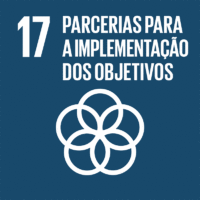Ciência_Iscte
Publicações
Descrição Detalhada da Publicação
Go global or go home: comparing the regional vs. global engagement of Brazil and South Africa at the UN General Assembly
Título Revista
Politikon
Ano (publicação definitiva)
2020
Língua
Inglês
País
Reino Unido
Mais Informação
Web of Science®
Scopus
Google Scholar
Esta publicação não está indexada no Overton
Abstract/Resumo
Brazil and South Africa have long been regarded as archetypical regional powers, commanding more resources than their neighbours, spearheading regional projects and pursuing high-profile global status. Yet, recent years have also evidenced how the engagement with their regions and acceptance as leading players is often ambiguous and incomplete. How does one ascertain that a regional power privileges either the regional or the global stage? Through an original dataset of Brazilian and South African output at the UN General Assembly between 1994 and 2013, we monitor sponsorship patterns and thematic preferences in order to verify whether these countries indulged their regional partners and topics. Our findings suggest that Brazil and South Africa favoured their immediate neighbourhoods but have gradually engaged their regions in different ways: while Brazilian emphasis on regional peers and themes declined over the years, South Africa developed an increasingly more regionalised UNGA agenda.
Agradecimentos/Acknowledgements
--
Palavras-chave
Brazil,South Africa,UN General Assembly,Regional powers
Classificação Fields of Science and Technology
- Ciências Políticas - Ciências Sociais
Registos de financiamentos
| Referência de financiamento | Entidade Financiadora |
|---|---|
| SFRH/BPD/116700/2016 | Fundação para a Ciência e a Tecnologia |
| 88881.132436/2016-01 | CAPES |
Contribuições para os Objetivos do Desenvolvimento Sustentável das Nações Unidas
Com o objetivo de aumentar a investigação direcionada para o cumprimento dos Objetivos do Desenvolvimento Sustentável para 2030 das Nações Unidas, é disponibilizada no Ciência_Iscte a possibilidade de associação, quando aplicável, dos artigos científicos aos Objetivos do Desenvolvimento Sustentável. Estes são os Objetivos do Desenvolvimento Sustentável identificados pelo(s) autor(es) para esta publicação. Para uma informação detalhada dos Objetivos do Desenvolvimento Sustentável, clique aqui.

 English
English



